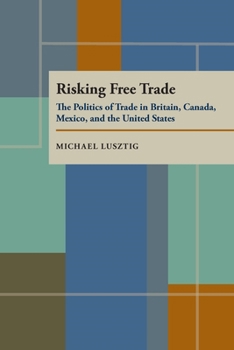Risking Free Trade: The Politics of Trade in Britain, Canada, Mexico, and the United States
There are few issues as politically explosive as the liberalization of trade, as recent controversies in the United States, Canada, and Mexico have shown. While loosening trade restrictions may make sense for a nation s economy as a whole, it typically alienates powerful vested interests. Those interests can exact severe political costs for the government that enacts change. So why accept the risk?Michael Lusztig contructs a model to determine why and under what conditions governments will take the free trade gamble. Lusztig uses his model to explain shifts to free trade in four cases: Britain s repeal of the Corn Laws; the United States enactment of the Reciprocal Trade Agreements Act (1934); Canada s decision to initiate continental free trade with the United States in 1985; and Mexico s decision to pursue the North American Free Trade Agreement (NAFTA) in 1990.
Format:Paperback
Language:English
ISBN:082295589X
ISBN13:9780822955894
Release Date:November 1996
Publisher:University of Pittsburgh Press
Length:272 Pages
Weight:0.60 lbs.
Dimensions:0.5" x 6.0" x 9.0"
Related Subjects
Business Business & Investing Economics Political Science Politics & Social SciencesCustomer Reviews
0 rating





